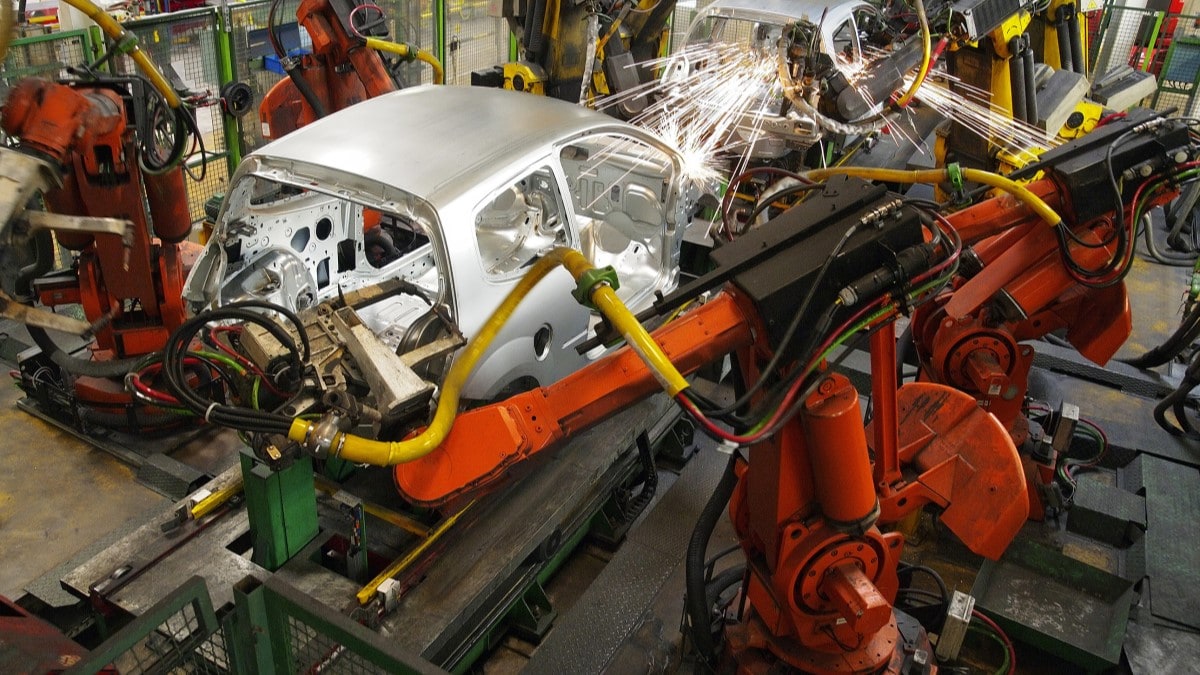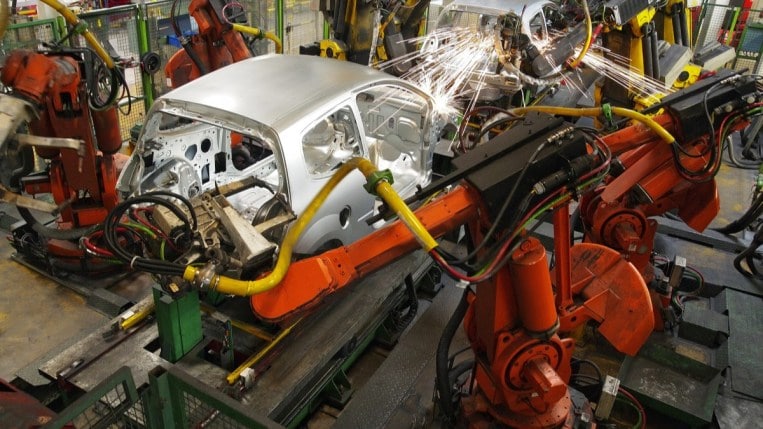
 Automakers trimmed 76,000 vehicles from global production plans last week, according to analysts from AutoForecast Solutions. They’ll produce about 3.23 million fewer this year than planned, the company says.
Automakers trimmed 76,000 vehicles from global production plans last week, according to analysts from AutoForecast Solutions. They’ll produce about 3.23 million fewer this year than planned, the company says.
Analysts have predicted for a long time that there would be a shortage of chips by the end of the year. Hope seems to have been shattered by new production cuts.
How did we get here?
The Size of the Problem
More than 17 million cars were purchased by Americans in 2019. For the fifth year in a row, we did it.
Cox automotive projects that Americans may have bought less than 13 million by the end of the decade.
Despite high prices this summer, demand for new cars has dropped. In August, the average new vehicle sold for $48,301, which is 10.8% higher than a year ago.
There is a problem. There is a shortage of chips.
How We Got Here
The most expensive cars used to be the only ones with chips. Even a highly affordable, low-tech car like theMitsubishi Mirage contains dozens of tiny microprocessors. They control a lot of things from traction control systems to cabin temperature.
A high-end luxury car like the Mercedes-Benz EQS can have hundreds.
The auto industry has a limited supply of crucial chips.
Demand for new cars plummeted in the early days of the COVID-19 Pandemic because of travel restrictions. The automakers limited their orders because of the slow vehicle production.
Car factories slowed down, but chip factories didn’t. New electronics were ordered by consumers to make it easier to work and attend school from home.
Demand for new cars increased when people were allowed to travel again after beingvaccinated. The automakers wanted to order new chips. The chip factories were busy. They have yet to catch up.
Americans are thirsting for new features in their cars. A near-record 17.5% of new cars sold in August were luxury cars.
Chip Production Recovering
The global chip production is starting to recover.
In August, chipmakers fulfilled orders an average of one day quicker than in July.
The industries that use chips are increasing in speed. Chris Rolland reported that demand for new cell phones has slowed.
The supply chain for personal computers is operating more like the historical norm this month, according to the CFO of Dell Technologies.
The investors seem to think the market is cooling. The Philadelphia Stock Market Semiconductor index was down more than 30% at press time.
But It’s the Wrong Kind of Chips
Why are automakers cutting production when chip production is improving?
High-end chips used in computers and cell phones aren’t the chips that automakers need
Today’s cars are littered with older, low-power microchips performing simple functions because of the automotive industry’s modular design approach.
The chips for use are certified by the automakers. They can’t swap a more complex chip for an older one that has been through safety testing.
The head of European technology research for JP Morgan said that there will be more capacity in the second half of 2022. Capacity is still needed for use in the automotive industry.
Spooling Up Chip Production Is a Slow Process
When the most profitable decision is to build cheaper devices in cars, chip manufacturers will only convert foundries from making high-end computer bound chips. The change doesn’t come fast.
It takes a while to fulfill orders once it arrives. A typical Semiconductor production line can involve 700 manufacturing steps across 14 weeks according to a procurement and supply chain expert.
Production capacity is being increased by chip manufacturers. It takes a long time to start up a new factory.
In January of this year, Intel announced plans for two new factories. The first usable chips will be produced sometime in the year 2026.
It’s possible that domestic production is part of the answer. The US produced almost 40% of the world’s chip supply in 1990. Only 12% of global supply is made in the country.
More Chips Doesn’t Necessarily Mean More Cars
The auto industry used to keep a lot of new cars for sale. Most cars were discounted when dealers kept a lot of inventory.
Once chip production recovers, that practice may not come back.
GM will never return to the pre-pandemic level of inventories because they have learned they can be more efficient.
Nicolas Peter, BMW’s Chief Financial Officer, told the Financial Times that the company plans to stick with the way it manages supply.
The parent company of Mercedes-Benz has a similar idea. The CFO of Daimler said that they would undersupply demand.
Ford may move closer to a build-to-order business model, though it won’t sell cars directly to customers, according to the company’s CEO.
Big inventories and hefty discounts may not return.
The automakers want to make as many cars as possible. They may not be able to make more than that.
You can get a price on a new car.